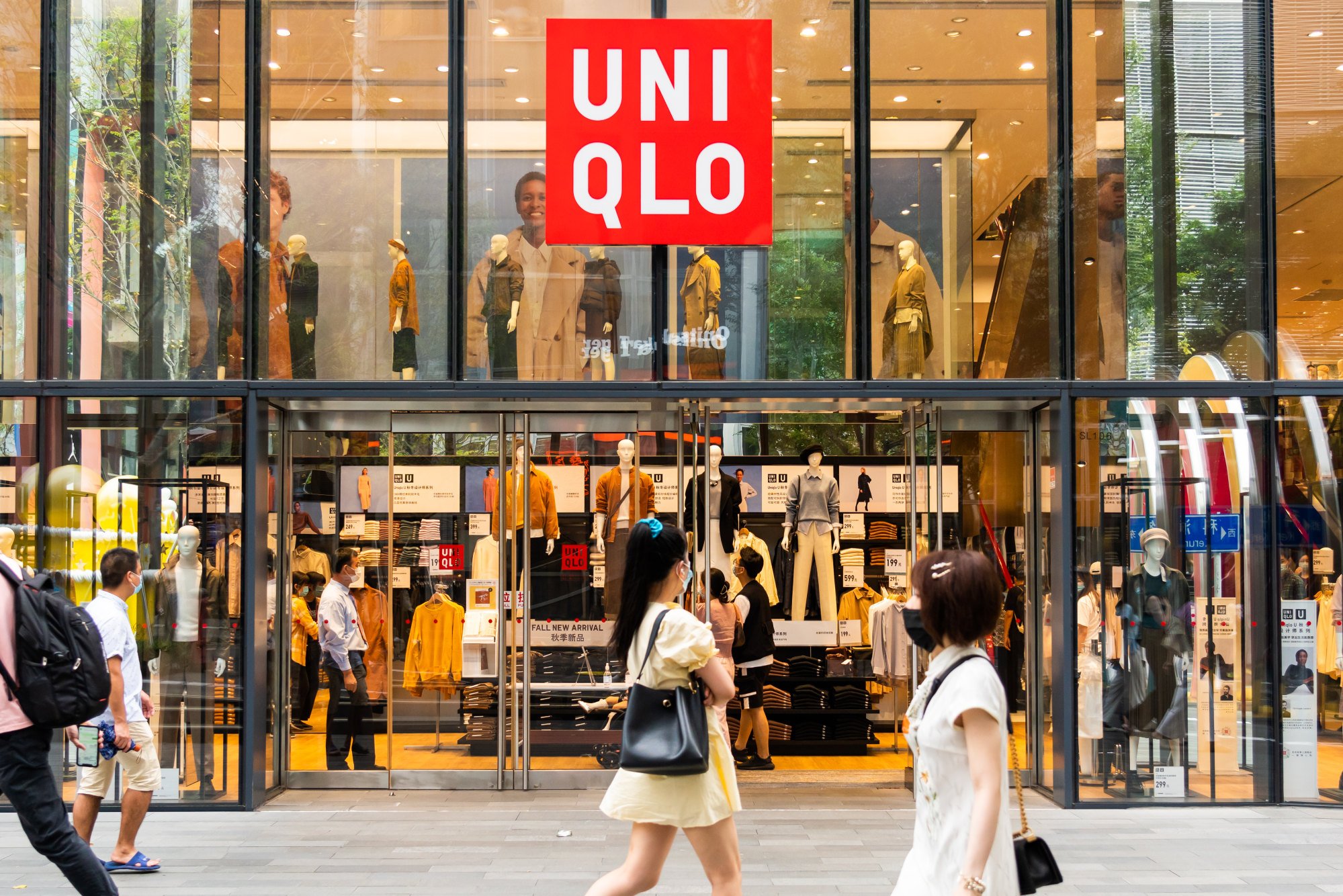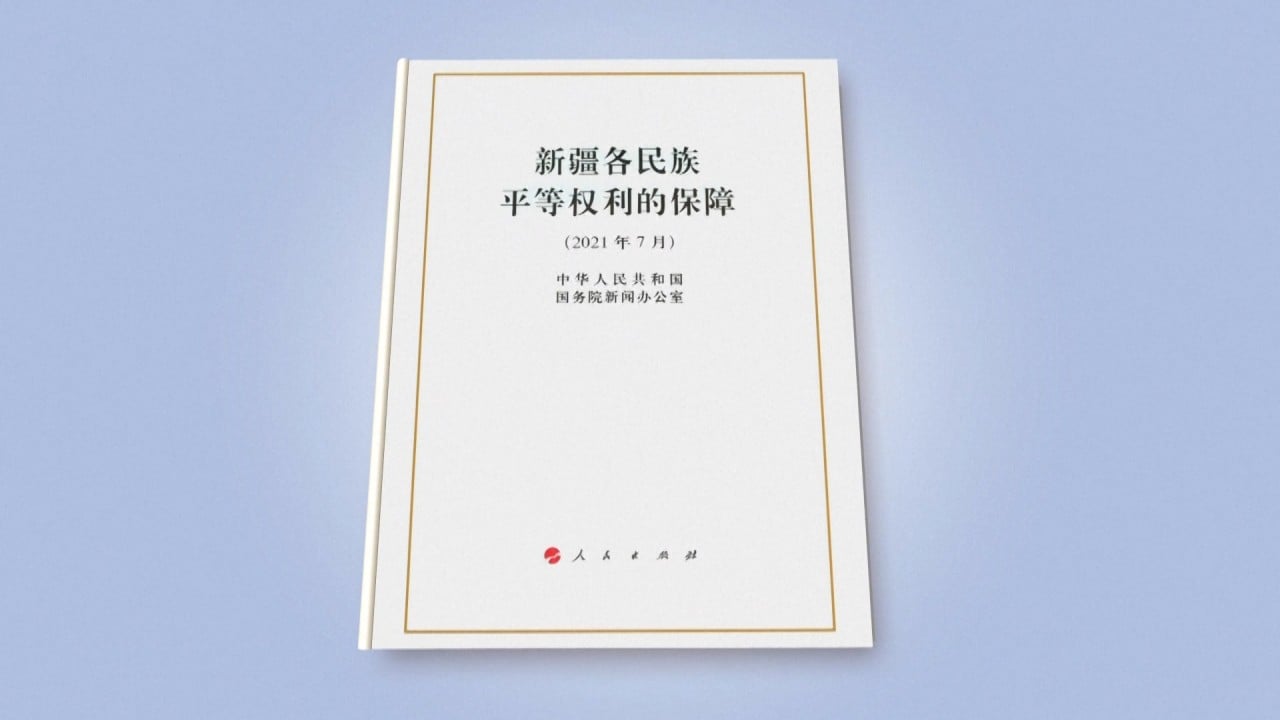
Japan’s Uniqlo CEO Tadashi Yanai says won’t get sucked into US-China rivalry
- In comments to Nikkei newspaper, Japan’s richest man said economic relations between Washington and Beijing remained strong despite growing power competition
- Yanai has not commented on whether Uniqlo uses cotton sourced from Xinjiang amid US allegations of forced labour in China’s westernmost region
Asked for his take on US-China tensions, Tadashi Yanai, CEO of Uniqlo’s parent Fast Retailing, told Japan’s Nikkei newspaper that despite fractious relations across trade to security, economic links between the two superpowers remained strong.
“Look at the reality,” he told the Nikkei. “The US and China may appear to be at odds, but they actually are not. American financial capital is flowing into Chinese investments. Apple products are all made in China. Chinese exports to the US have been rising. Economically, things are going well between the US and China.”
Washington is attempting to exert trade pressure on China for similar reasons that saw Japanese imports being condemned in the US in the 1980s, Yanai suggested. Japan’s growing trade surplus with the US prompted a series of anti-dumping measures against Japanese products, forcing Tokyo to impose export controls and expand its imports.
Japan’s former PM Suga strikes conciliatory tone towards China
“The US approach is to force companies to show their allegiance. I wanted to show that I won’t play that game.”
Japanese apparel makers have faced pressure to join an international campaign to reject cotton produced in the westernmost Chinese province over allegations that ethnic minorities there including Uygurs have been subject to forced labour and other human rights abuses.
Sanyo Shokai, the firm behind the Paul Stuart and Epoca brands, is following suit in ranges that will be released from next spring. Sporting good maker Mizuno and the clothing company World had previously announced a halt to purchases of Xinjiang cotton.
In January, it blocked a shipment of Uniqlo shirts saying the company had failed to provide enough information to establish that the items were not produced in part by forced labour from Xinjiang.
Why is Abe stirring Japan-China pot with ‘suicidal attack on Taiwan’ remarks?
The geopolitical turmoil has added uncertainty for apparel companies that had been betting on China to fuel future growth.
Stephen Nagy, an associate professor of international relations at Tokyo’s International Christian University, said Yanai’s comments suggested that he felt he could continue operating without considering geopolitical issues, but “I don’t think that is possible”.
“I think he is doing what many Japanese businesses with a footprint in China are doing if they want to maintain that presence there,” he said.
“They are trying to keep a low profile because it is a huge market today and into the future, while they have also seen what can happen to companies in countries where governments have made political decisions that Beijing dislikes, such as Canada and Australia.”
The comments by Yanai do not look good and the issue is going to continue as Japan appears to be taking a firmer line on China
And while China might not have directly applied pressure to Fast Retailing to make sure that executives did not say anything that run counter to its narrative on the situation in Xinjiang, Nagy said the company “would have been fully aware of the risks of anything that might be perceived as critical of the Chinese government,” including potentially being denied access to that huge and lucrative market.
While Japanese consumers are far less motivated by ethical considerations in their purchases than buyers elsewhere, Yanai’s refusal to distance himself from allegations of human rights abuses in Xinjiang will not play well at home, Nagy believes.
“It is clear that more and more Japanese have unfavourable opinions towards China, they are aware of the allegations of human rights violations in Xinjiang, of the erosion of rights in Hong Kong and the threats that are being made towards Taiwan,” he said.

“I would say that most Japanese do not look at the label in an item of clothing when they buy it, but these comments by Yanai do not look good and the issue is going to continue as Japan appears to be taking a firmer line on China.”
Hiromi Murakami, a professor of political science at the Tokyo campus of Temple University, agreed that Japanese people are becoming “more aware” of human rights and other issues in China, but Yanai’s stated position may very well cause the company more problems in markets where these matters are taken more seriously.
“I’m very surprised he has said these things,” she said. “As the head of a company with a global presence, it was very risky to make such statements.”
Additional reporting by Bloomberg


